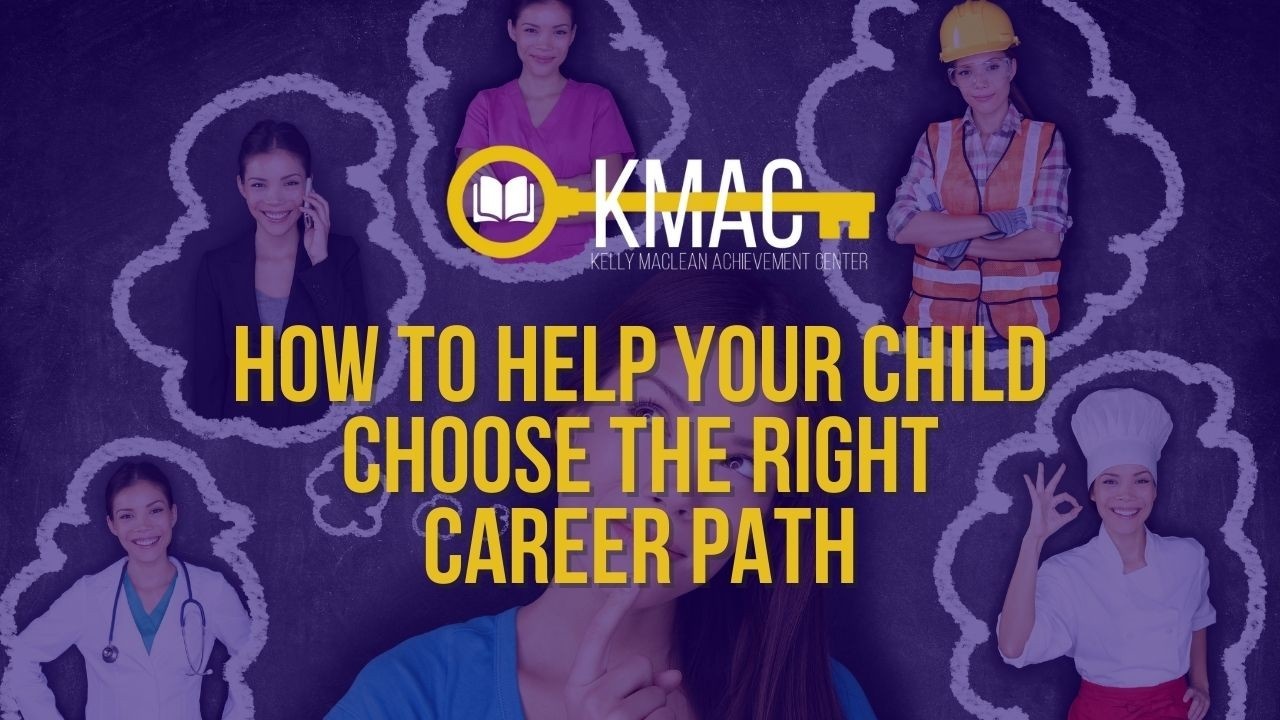
How To Help Your Child Choose The Right Career Path
Dec 28, 2021One of the goals of high school is to prepare students for the “next level” of education, but the reality is that the "next level" is different for everyone. Not all careers begin with a 4-year degree. Some require a post-graduate degree (which means more than 4 years!), or maybe a 2-year degree, technical or trade school, apprenticeships, or none of the above! The question becomes, how do you decide what kind of school or training you should pursue?

You work backwards!
So many students assume that the next step for them is applying to college at a 4-year school, when they should really be thinking about what they ultimately want to do with their lives. By choosing a career end goal, a student can piece out what steps they need to take in between where they are now and where they want to be.
What do you want to be when you grow up?
Your child has been asked this question since they could talk. And while their answers may have changed from the princess, dinosaur, astronaut, or astronaut-dinosaur-princess of childhood, it's still an important question when it comes to planning their future.
Unfortunately, many kids make their decisions based off the wrong information. Many students know the “typical” careers: engineer, lawyer, doctor or nurse, teacher, and maybe a few others that their parents or their relatives do, and they make their decisions based on what they know is out there; alternatively, they make decisions based solely on a perceived proficiency in a school subject that may not necessarily translate into the workplace.
Some stories that we hear are:
-
“Well my mom is a doctor, so I was thinking about being a doctor, and I saw that Duke was rated really high on US News and World Report’s rankings so I figured I would apply there.”
-
“My dad said that because I’m good at math, I should go into engineering or maybe accounting. I think he went to Purdue so I guess I will apply there”
-
“I want to work in criminal forensics because it seems interesting from what I’ve seen on crime documentaries on Netflix. I think I’ll apply to Miami, because my one friend told me it’s a good school.”
-
“I really don’t know what I want to do for a career, but my uncle went to Ohio State, so I guess I’ll go there if I get in.”
None of these stories involve any real critical thinking or research, just assumptions and trusting second-hand information. It's great to use these as starting off points, but what happens when you're two semesters into a biology degree and nothing makes sense, or when you don't get into Ohio State because you don't meet any of the requirements? Won't you wish that you had put more thought into those decisions beforehand?
The question we should really ask is: what do you want from your life?

We suggest taking a more holistic approach to figuring out your career goals. Take some time to really think about what you want from your life.
- What kind of a work/life balance do you want?
- How much do you want to work directly with people?
- How much responsibility do you want? Do you want to own your own business, manage employees below you, or take direction from someone else?
- What amount of money would you be most comfortable living on?
- What are some long-term goals that you might have?
- Do you want to move to a new city, state, or country? What is the cost of living like there?
- Will you want to get married, have kids, or travel in the future?
- How much school do you want to go through?
- What will you be happy doing for the next 5, 10, or 30 years?
- What skills do you already have that you could improve on, or want to improve on? What skills do you lack and want to avoid doing?
Some of these questions require a lot of thought and introspection, but think about it: this is the rest of your life you're talking about, and these questions can help eliminate a lot of wrong paths! If you don't want to work directly with people, social work probably won't be the best path for you. If you aren't comfortable spending almost 10 years in school, then it may be best to choose a path other than medicine!
Once you have some answers to these questions, start your research into what careers align with your goals. Our favorite resource for career exploration is the Bureau of Labor Statistics' Occupational Outlook Handbook. Start looking through the descriptions and see where the information aligns with your answers to the questions above.
Once you have a list of careers, you can research them more thoroughly and make more informed decisions based on that information. This list of careers will act as a starting point for the rest of your high school and college decisions and provide a platform to work back from.
If you need help on making decisions, finding resources, or figuring out what steps you need to take to reach your goals, contact us today to schedule a free 15-minute consultation to see how the Kelly MacLean Achievement Center can help YOU (or your child) make the right decisions for the future!

